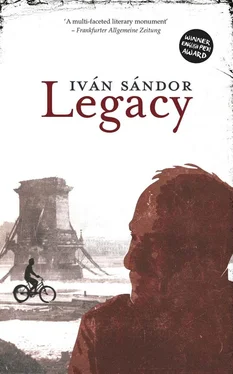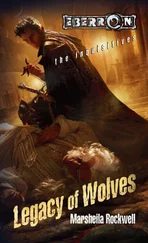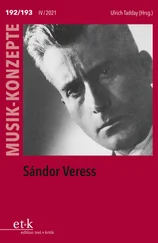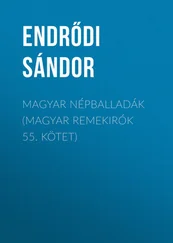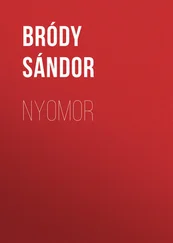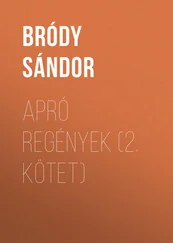We stuff things into the long-prepared knapsacks. Yet one more pair of warm socks, another can of food. I can’t make up my mind whether to put on my winter coat or the windcheater I was given for school trips. The windcheater, says Father, with two pullovers under it. Mother pauses her packing. We wind scarves around our necks, pull our caps down to our eyes.
Misi, having called out through the door that he’s fetching the keys and putting a coat on top of his pyjamas, slips out of the back door of the kitchen, clothes over one arm. The caretaker’s apartment opens on to the yard at the back. Ten minutes later Misi returns with documents belonging to the caretaker’s son’s, who is away. Misi raises one hand to the peak of his cap in salute before showing the papers, looking at his parents, his younger sister and his grandparents.
One of the men with an Arrow Cross armband is already wrapping up the cut-glass vases. Misi rebukes him. Watch it, says the man in the raincoat, your own head is far from securely attached to your neck.
I am not able to witness that, Misi’s younger sister Mádi tells me fifty-eight years later. She was paying a visit to Budapest from Paris. We drink cups of coffee in my home. How long I have known these cool, not indifferent faces that speak meaningfully of a world which, strictly speaking, is now inaccessible.
The KISOK football ground of the middle-schools’ sports club, the gate in its wooden fencing wide open. Several thousand of us gather in the slush. Groups escorted by Home Guards with armbands of the Arrow Cross, BuMuT conductors and black-uniformed soldiers arrive from Queen Erzsóbet Avenue, from the direction of Kolumbusz Street, Amerikai Road and Rákosrendező Railway Station.
Many are poor. Worn-out shoes, threadbare trousers, ragged shawls.
I stand near one of the goals. I used to play on that pitch. An inter-schools championship. White football jersey, black satin shorts. It’s hard to move inside the ring of armed men.
The first shot cracks out.
A number 67 tram turns in from Mexikói Road, wheels squeaking. Passengers stare at us from the tram windows. I am sitting on the other side; they must be able to see the sign of the well-known Woman of Trieste tavern and eating-house in Zugló.
It is sleeting as we set off. The older people stumble. I get sleet splashed on to my britches.
Between Hungária Outer Circle and Hermina Road, at the place where yesterday I bought a pair of black socks from a street vendor, several dozen bystanders watch the procession. A young lad wearing a cap of Hungary’s quasi-military Levente youth movement jumps in among us. He is two or three years older than me. He runs forward, beckoning to his friends. He points me out. He has a scar on his chin. Lives in the neighbourhood. We have met more than a few times at the ice rink. He is pointing in the same way as I do in front of the monkey cages to my classmates on school trips to the zoo.
We have seen each other plenty of times on the streets of Zugló, the XIVth District, in the yard of the film factory on Gyarmat Street. Maybe that was his workplace. He always steers away from me; I never thought to ask about it …
What would I ask?
The subconscious is a huge storehouse; forgetting is instantaneous. Yet just a sound, a look, can conjure up what has been forgotten.
I buy bread from the baker’s on the corner of Hermina Road. Housewives queue up silently with their shopping-bags. The counters are located on the spot where the comfortable armchairs once stood in front of the mirrors in Mr Zsilka’s hairdressing salon on lino that every ten minutes was swept clear and wiped over with a damp rag.
Mr Zsilka, on his kiddies’ swivel chair that could be raised or lowered with a twirl, is my hairdresser. He drapes a pink cloth with a floral pattern around my neck. Mother waits in an armchair by the cash desk. She tells Mr Zsilka what kind of haircut we want. I know, I know — küss-die-Hand — the same as last time. In the mirror I can see the assistants soaping the cheeks of the clients with shaving brushes. Mr Zsilka has a rubicund face; his breath smells of lavender water; he has a grizzled crew cut; his potbelly is pressed to my back as he leans over me.
He is standing in the open doorway, watching the procession.
I can see inside the shop as far as the mirrors.
A gust of wind snatches at his white cap. He starts to raise his hand; as though seeking to assist him, Father gives a nod. We’ll work later, he is saying as he does this. We’ll work later in Germany.
Groups like ours are marching along other streets.
Budapest is a city of yellow-starred children, women and the elderly stumbling along with escorts of armed men.
At the Outer Circle, on the corner with Népszínház Street, a boy somewhat like me is able to look at the crowd gathering on the pavement, the same way as I am taking a look at Thököly Road.
He can see on the pavement, just like I see, the chin-scarred, jumping lad, a tall, slim, fair-haired young fellow who after fifty-eight years is now speaking. I remember, I was standing there as a nineteen-year-old in the open street and I was amazed that a column with hands behind their necks was passing. There must have been two or three hundred of them, with yellow stars on their chests. At the head, on the left and right and bringing up the rear, were young men with Arrow Cross armbands and submachine guns, four of them in all, between them two or three hundred people, women, children and the elderly, and since they were going along the middle of the road even the trams had to halt, sneakily bided their time — just take your time, please, take all the time in the world, we’re in no hurry — and there were three or four thousand there, watching from the pavement. I was also standing there, D., a big actor, recollects in a newspaper article. I watched it as a spectacle. If those three or four thousand had done nothing else but set off towards the column, blocked the way, then those people would have remained alive, but nobody set off, and what remains of such experiences is the deep, gnawing shame of knowing one was there but did nothing.
The elderly man, the fourth in our row, is wheezing as he breathes and stumbles. Father would have taken over his knapsack if he were not already carrying mine as well.
I can no longer hear the waltz from the loudspeaker at the rink.
A few days before the cyclist peeled off at the corner of Bem Quay and Halász Road the Hungarian edition of the 1995 book Carl Lutz und die Juden von Budapest appeared — about the man who was Switzerland’s Vice-Consul in Budapest from 1942 until the end of the Second World War — written by Swiss church historian Dr Theo Tschuy.
We reach the Outer Circle.
From the left, coming out of Népszínház Street, another column attaches itself to ours.
At around this time Carl Lutz enters the office of Hungary’s Foreign Minister. His way is barred by a hulking, brutish ministerial aide whose diplomatic experience consisted of having been a bodyguard and gang leader in the royal household of the Emperor of Abyssinia. Three days before that, when the concentration (as the official regulations term it) of Budapest’s Jews in the Óbuda Brickworks had already begun, Lutz had written a five-point letter of protest. The government is working out the details of the concentration, and plans for deportation by forced march from the Óbuda Brickworks to Germany are being worked out under the direction of Gábor Vajna, Minister of the Interior. Friedrich Born, the authorized representative of the International Committee of the Red Cross (ICRC) in Budapest, demands to be allowed to inspect the site, writes in his report that crammed together there are people of all ages, from teenagers to those in their eighties; Arrow Cross Party men choose who is able to march, but they declare as unfit only the disabled and the terminally weak, and nobody is allowed a blanket or any food.
Читать дальше
